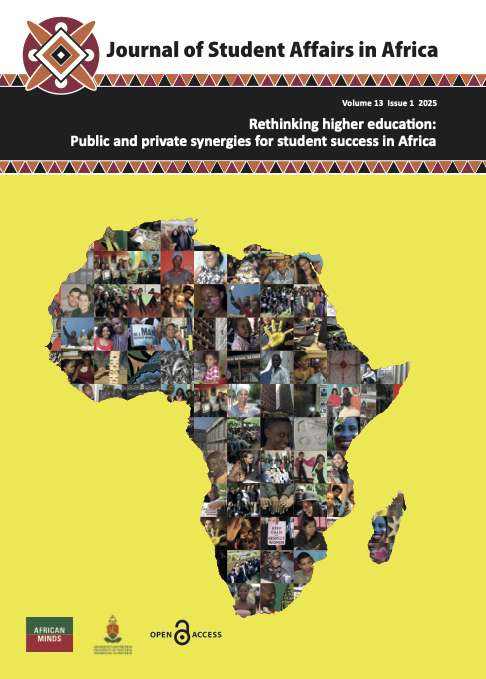Becoming more private: Broadening the base of South African higher education
DOI:
https://doi.org/10.24085/jsaa.v13i1.5981Keywords:
private higher education, public higher education, post-school education and training (PSET) sector, higher education funding, National Qualifications Framework (NQF), enrolment planning, educational inequality, lifelong learning, public-private partnershipsAbstract
In an era marked by declining government funding for tertiary education, the South African PSET sector faces an existential crisis. The silo-fication of the system means that the growing demographic of youth entering post secondary education is limited in the options available to them. The paper explores how reduced government funding has strained public universities, leading to widespread student protests, increased dropout rates, and compromised educational quality. Our focus in this paper is on the role of private higher education and, in its own right, collaborating with other parts of the PSET sector. What is needed is a HE system that facilitates much more coordination and collaboration and for the components of the PSET sector to find ways of working together to create a coherent, integrated network to produce maximal learning opportunities for students and to support the objectives of the NQF Act. This paper serves as a call for policymakers, educational leaders, government, and stakeholders to recognise and leverage the growth capacity of private higher education in shaping a resilient, integrated, and future-proof PSET sector in South Africa.
Downloads
Published
Issue
Section
License
Copyright (c) 2025 Ahmed Bawa, Linda Meyer

This work is licensed under a Creative Commons Attribution-NonCommercial-ShareAlike 4.0 International License.
Authors who publish with this journal agree to the following terms:
Authors retain copyright and grant the journal right of first publication with the work simultaneously licensed under the Creative Commons Attribution Share-alike 4.0 International License that allows others to share the work with an acknowledgement of the work's authorship and initial publication in this journal.
Authors are able to enter into separate, additional contractual arrangements for the non-exclusive distribution of the journal's published version of the work (e.g., post it to an institutional repository or publish it in a book), with an acknowledgement of its initial publication in this journal.
Authors are permitted and encouraged to post their work online (e.g., in institutional repositories or on their website) prior to and during the submission process, as it can lead to productive exchanges, as well as earlier and greater citation of published work (See: The Effect of Open Access).


